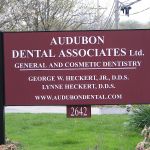The Role of Mouthwash in Oral Hygiene
Good oral hygiene is a cornerstone of overall health, playing a crucial role in maintaining healthy teeth and gums. While brushing and flossing are often emphasized as the primary steps in a dental care routine, mouthwash is an important but sometimes overlooked component that can bolster your oral care regimen. In this article, we will explore the role of mouthwash in oral hygiene, examining its benefits and importance to American oral health practices.
Mouthwash, or mouth rinse, is a liquid product used to rinse the mouth, typically after brushing. It usually contains active ingredients that are intended to reduce plaque, bacteria, and the risk of gingivitis, while freshening breath at the same time. In the realm of oral hygiene, mouthwash serves as an adjunctive tool rather than a standalone solution for maintaining oral health.
The Benefits of Using Mouthwash
The primary benefit of mouthwash is its ability to reach areas in the mouth that a toothbrush or floss cannot. This can significantly reduce the buildup of plaque and prevent cavities. According to a study in the Journal of the American Dental Association, regular use of mouthwash can reduce oral bacteria and help prevent oral diseases compared to brushing alone.
Mouthwash can also enhance oral hygiene by helping to control bad breath. Most mouthwashes contain antimicrobial agents that kill bacteria responsible for bad breath. For people who suffer from halitosis, incorporating mouthwash into their routine can provide noticeable improvements in breath freshness, boosting confidence and social comfort.
Understanding the Different Types of Mouthwash
There are two main types of mouthwash: therapeutic and cosmetic. Therapeutic mouthwashes contain active ingredients like fluoride, cetylpyridinium chloride, and essential oils that help reduce or control plaque, gingivitis, bad breath, and tooth decay. Cosmetic mouthwashes, on the other hand, temporarily control or reduce bad breath and leave users with a pleasant taste.
Choosing the right type of mouthwash depends on your specific oral health needs. For example, someone prone to cavities might benefit from a fluoride mouthwash, while those concerned about gingivitis should seek out anti-plaque formulas. For personalized recommendations, it’s best to consult with your dentist, like those at Dentistry Toothtruth.
Proper Use of Mouthwash in Daily Routine
To gain the full benefits of mouthwash, proper usage is essential. Dentists recommend using about 20-30 ml of mouthwash per rinse, swishing vigorously for at least 30 seconds. It’s important not to eat, drink, or rinse your mouth with water immediately after using mouthwash, as this can wash away the active ingredients and lessen the effectiveness. Mouthwash should be used as a complement to brushing and flossing, not as a substitute.
For those with specific dental conditions, like oral mucositis or after surgery, a dentist may modify how often mouthwash should be used or recommend a gentle, alcohol-free formula.
Common Myths About Mouthwash
Despite its benefits, there are several myths surrounding mouthwash. One common misconception is that mouthwash can replace brushing and flossing. However, dental experts universally agree that while mouthwash is an effective part of a complete oral care regimen, it cannot replace the mechanical action of a toothbrush and floss.
Another myth is that all mouthwashes are alcohol-based and therefore not suitable for everyone. While alcohol-based mouthwashes are common, there are many alcohol-free varieties that are suitable for all ages and preferences, ensuring that mouthwash is accessible to a wide audience.
The Importance of Mouthwash Selection
Choosing the right mouthwash involves understanding the specific oral health benefits that different formulations offer. For example, antiseptic mouthwashes are effective in killing bacteria and reducing plaque, but may not be suitable for those with sensitive gums. Conversely, fluoride mouthwashes are ideal for strengthening enamel and preventing tooth decay.
- Antiseptic Mouthwash: Contains ingredients like chlorhexidine to reduce bacteria.
- Fluoride Mouthwash: Helps in the remineralization of enamel.
- Whitening Mouthwash: Contains bleaching agents to whiten teeth.
- Alcohol-free Mouthwash: Suitable for sensitive mouths and children.
Considering these options, individuals should choose mouthwash based on their specific needs and under the guidance of a dental professional.
Conclusion: A Key Component of Oral Hygiene
In conclusion, incorporating mouthwash into your oral hygiene routine provides significant benefits that complement traditional practices such as brushing and flossing. It’s particularly advantageous in reaching areas that other tools might miss and in offering tailored benefits such as breath freshening and cavity prevention.
For American consumers seeking optimal oral health, recognizing the role of mouthwash as a strategic addition to daily dental care is crucial. By understanding the types, uses, and selecting the appropriate mouthwash for their needs, individuals can enhance their oral hygiene effectively.
Remember, no oral health routine is complete without a visit to your dentist. Regular dental checkups and cleanings, combined with a robust home hygiene routine that includes mouthwash, will help you maintain a healthy, confident smile for years to come. Visit Dentistry Toothtruth for more insights and guidance on dental care.







 Poplar Crossing Dental- Hoffman Estates Dentist4.0 (7 review)
Poplar Crossing Dental- Hoffman Estates Dentist4.0 (7 review) Magdy Attia0.0 (0 review)
Magdy Attia0.0 (0 review) Community Dental of Burlington4.0 (281 review)
Community Dental of Burlington4.0 (281 review) Peak Vista Community Health Centers -Dental Center at International Circle2.0 (74 review)
Peak Vista Community Health Centers -Dental Center at International Circle2.0 (74 review) Canton Orthodontics4.0 (117 review)
Canton Orthodontics4.0 (117 review) Audubon Dental Associates Ltd5.0 (6 review)
Audubon Dental Associates Ltd5.0 (6 review) The Importance of Oral Health Education During Pregnancy for a Healthy Pregnancy
The Importance of Oral Health Education During Pregnancy for a Healthy Pregnancy Best Tips for Brushing Your Teeth Properly for Healthy Gums: Essential Techniques for Oral Health
Best Tips for Brushing Your Teeth Properly for Healthy Gums: Essential Techniques for Oral Health Why Skipping Dental Checkups Can Lead to Bigger Oral Health Problems
Why Skipping Dental Checkups Can Lead to Bigger Oral Health Problems Advantages of Porcelain Dental Restorations
Advantages of Porcelain Dental Restorations How Can Diabetes Cause Tooth and Gum Problems? Preventing and Managing Oral Health Issues
How Can Diabetes Cause Tooth and Gum Problems? Preventing and Managing Oral Health Issues Healthy Habits for Promoting Good Oral Health and Hygiene: Tips for a Healthy Smile
Healthy Habits for Promoting Good Oral Health and Hygiene: Tips for a Healthy Smile